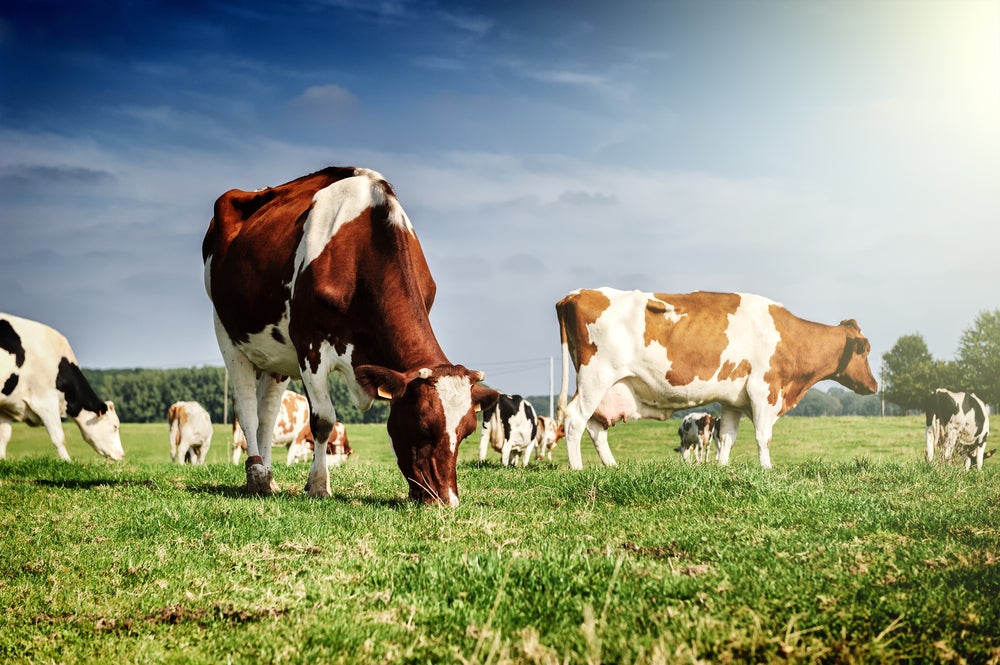
Lab-grown meat may not be the viable alternative to farming that loyal meat-eaters have hoped for, with the process creating even more greenhouse gases.
A study from the Oxford Martin School looked at projections for creating cultured meat and found that some forms could lead to higher global temperatures in the long run.

Access deeper industry intelligence
Experience unmatched clarity with a single platform that combines unique data, AI, and human expertise.
This is because when previous studies have compared the two, they have compared the amount of carbon dioxide produced in lab meat with the equivalent methane in farming – a misleading approach.
“Cattle are very emissions-intensive because they produce a large amount of methane from fermentation in their gut,” advised study co-author Raymond Pierrehumbert, Halley professor of Physics at the University of Oxford.
He continued: “Methane is an important greenhouse gas, but the way in which we generally describe methane emissions as ‘carbon dioxide equivalent’ amounts can be misleading because the two gases are very different.
“Per tonne emitted, methane has a much larger warming impact than carbon dioxide, however, it only remains in the atmosphere for about 12 years whereas carbon dioxide persists and accumulates for millennia.”

US Tariffs are shifting - will you react or anticipate?
Don’t let policy changes catch you off guard. Stay proactive with real-time data and expert analysis.
By GlobalDataLead study author Dr John Lynch said: “This is important because while reducing methane emissions would be good – and an important part of our climate policies – if we simply replace that methane with carbon dioxide it could actually have detrimental long-term consequences.”
Farming versus lab meat
Researchers say greenhouse gas emissions are responsible for about a quarter of the global warming situation we face today.
The Oxford Martin School researchers considered data on the emissions associated with three cattle farming methods in use and four possible meat culture methods.
Cultured meat and cattle farming have complex inputs and impacts, for example, creating grazing land for the cattle can lead to deforestation, which can increase the carbon dioxide footprint.
Producing meat in a laboratory could free up land for carbon sequestration, storing carbon dioxide to help combat climate change.
Lynch explained: “We show that it is not yet clear whether [substituting cattle beef with cultured meat can provide an important climate benefit], partly because of uncertainties about how cultured meat would be produced at scale.
“An important issue in comparing farmed and cultured beef is that the different warming impacts of greenhouse gases are also not well accounted for in the standard measure used in carbon footprints.
“The climate impacts of cultured meat production will depend on what level of sustainable energy generation can be achieved, as well as the efficiency of future culture processes.”







